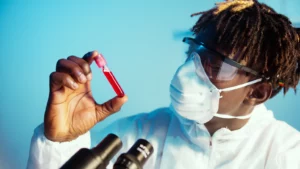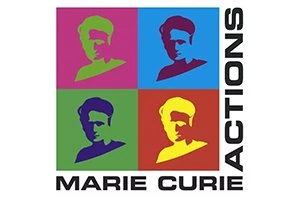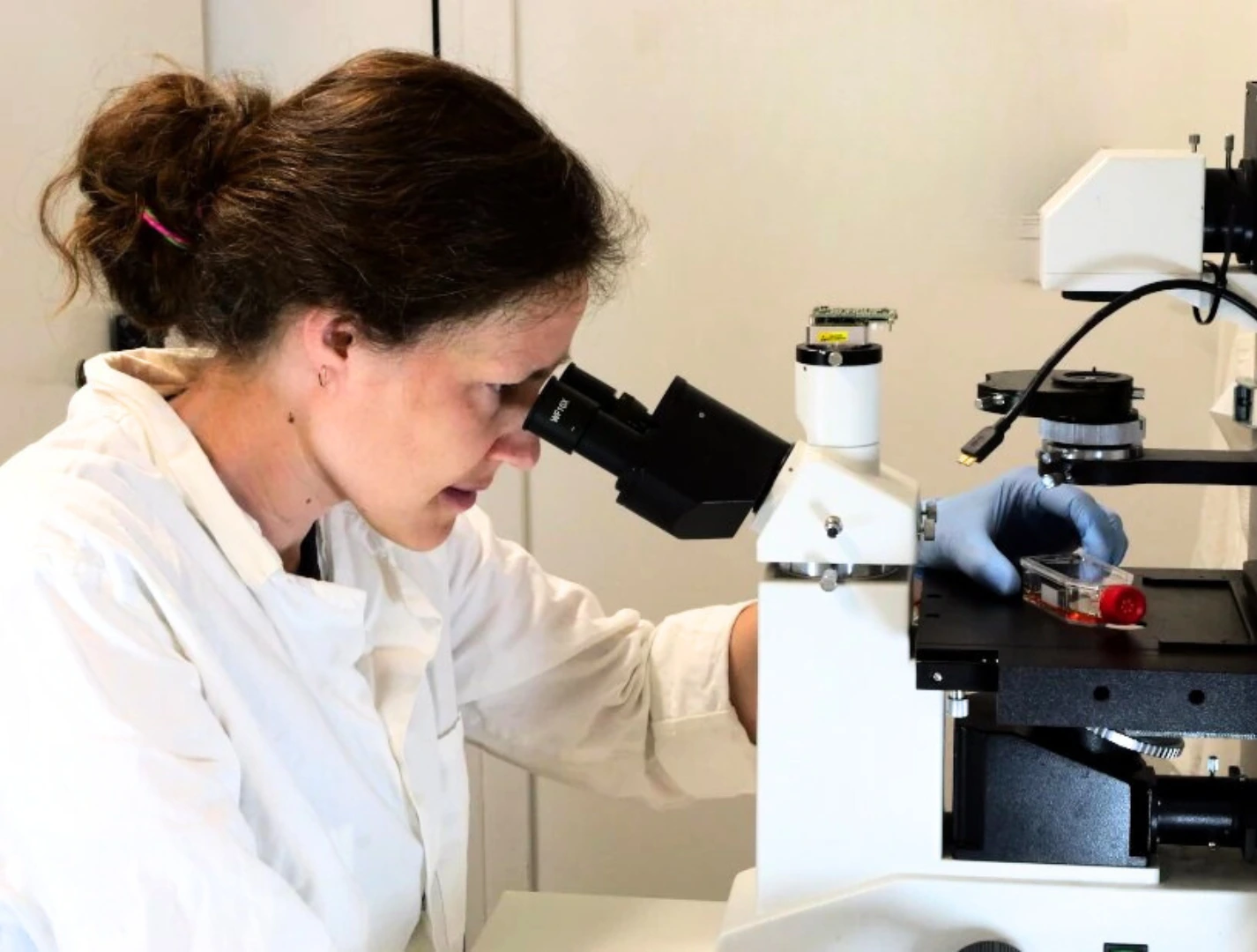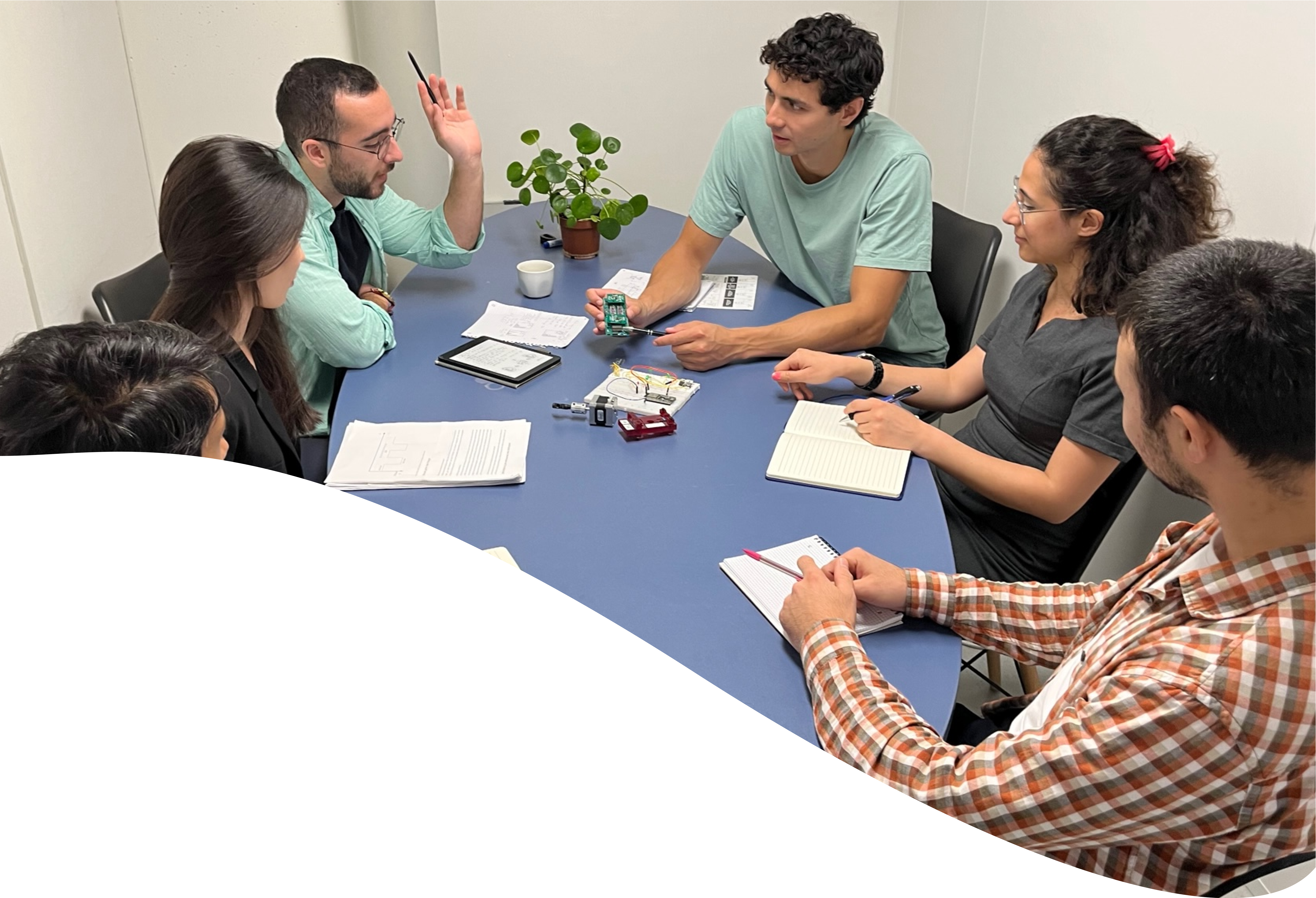NEXTSCREEN
Enhanced imaging flow cytometry
Writer
Celeste Chidiac, PhD
Keywords
Microfluidic Devices, Intelligent Microfluidics, Artificial Intelligence, Machine Learning
Author
Marco De Battista
Publication Date
June 28, 2023
Keywords
Intelligent Microfluidics
Deep Learning
Microfluidic Devices
Artificial Intelligence
Machine Learning
imaging flow cytometry
single-cell analysis
high-throughput imaging
Your microfluidic SME partner for Horizon Europe
We take care of microfluidic engineering, work on valorization and optimize the proposal with you
Microfluidics for enhanced imaging flow cytometry allows unprecedented microscopic resolution, low costs, and broad applications.
Microfluidics in flow cytometry: introduction
 Characterization of the cellular heterogeneity of complex biological systems requires high-throughput screening techniques. Single-cell screening in large cellular populations is crucial for characterizing pathogenic drivers and biomarkers.
Characterization of the cellular heterogeneity of complex biological systems requires high-throughput screening techniques. Single-cell screening in large cellular populations is crucial for characterizing pathogenic drivers and biomarkers.
One of the most common methods for single-cell analysis is optical microscopy, which allows for the characterization of cellular features such as morphology, structure, antigen abundance, localization, and others.
Flow cytometry techniques have been developed to extend optical microscopy to a large volume of biological samples. This imaging procedure involves moving material through a controlled flow before microscope lenses, capturing live images.
There is an ongoing effort to develop enhanced imaging flow cytometry techniques. However, several challenges must be addressed for this technique to become more widespread.
These challenges include difficulties related to the accurate interpretation of acquired images, the high costs and complexity of the technique, and a lack of standardization.
NEXTSCREEN aims to address these challenges by training 11 young doctoral candidates in different international research institutions, forming a highly cooperative doctoral network to develop new competencies and improve their careers.
How enhanced imaging flow cytometry will take place: project description
The NEXTSCREEN project entails the creation of a European MSCA doctoral network. The outlined aims are to reduce the cost and complexity of automatic cellular and particle screenings, expand flow cytometry utilization by developing novel contrast mechanisms and higher resolution, and artificial intelligence image analysis for automation. The development of new protocols will allow for increased standardization and future reproducibility.
A scientific objective and proof of concept will be the demonstration that flow cytometry can be used for identifying and characterizing tumor biomarkers in blood-derived samples.
The long-term goal is to have enhanced imaging flow cytometry become an in-vitro diagnostics device. The 11 doctoral candidates will each focus on distinct yet interconnected subprojects collaborating with academic and industrial institutions.
Enhanced imaging flow cytometry: our role
 We intend to have an essential role in developing enhanced imaging flow cytometry. Specifically, the doctoral candidate will design fluidic control systems for ultra-low-flux and ultra-high-throughput flow cytometry.
We intend to have an essential role in developing enhanced imaging flow cytometry. Specifically, the doctoral candidate will design fluidic control systems for ultra-low-flux and ultra-high-throughput flow cytometry.
This work will be crucial to achieving super-resolution and high-throughput imaging for flow cytometry.
Thanks to our experience in microfluidics, we will develop innovative flow control systems while also contributing to the training in fluidics engineering of other doctoral candidates.
The development of flow control manipulation techniques is essential for the customization of flow cytometry utilization (rapid mixing, sequential injection/flow switching, heating, and others).



Funding and Support
This project has received funding from the European Union’s Horizon research and innovation program under the Marie Skłodowska-Curie grant agreement no. 101119729 (NEXTSCREEN).
Topic: HORIZON-MSCA-2022-DN 01-01
Start date: 01 December 2023
End date: 30 November 2027
EU contribution: € 2,608,819.19
Check our Projects
FAQ – Enhanced imaging flow cytometry: NEXTSCREEN
What is enhanced imaging flow cytometry?
It is the union of standard flow cytometry (high-throughput, quantitative microscopy of large numbers of cells) and microscopy-quality imaging. The hydrodynamic movement of cells along a small microfluidic channel is imaged in vivo and analyzed using algorithms that read morphology, subcellular localization, and marker expression at high throughput. The enhanced aspect is the extension of the resolution, contrast mechanisms, and automation beyond what the existing instruments are usually capable of.
What is the importance of this to single-cell studies today?
Cohorts and clinical specimens for large- and small-scale studies require scale and subtlety. Flow cytometry can be imaged with single-cell granularity without loss of throughput, making it suitable both for dissecting heterogeneity (rare subpopulations, dynamic states) and for discovering biomarkers in which morphology and spatial context are important. The NEXTSCREEN program specifically aims at these bottlenecks, resolution, interpretability, and standardization, to ensure that the process can shift out of the niche and into routine.
What is the extent of the NEXTSCREEN project?
NEXTSCREEN is a Marie Sklodowska-Curie Doctoral Network, which trains 11 PhD students in different institutions to develop the field in technical and methodological terms. The network goals are: reducing screening costs and complexity, developing new contrast mechanisms at higher resolution, using AI to interpret images, and developing protocols that are repeatable across laboratories.
What is the actual benefit of microfluidics to the cytometer?
Microfluidics offers fielded vigor over flows of extremely small volume and extremely large rate, two domains that are notoriously hard to balance. The stream is shaped (e.g., rapid mixing, sequential injection/flow switching, gentle heating) to stabilize cells in the focal plane, minimize motion blur, and provide repeatable imaging conditions. It is that consistency that opens the door to super-resolution image pipelines and trustworthy AI training data.
What is MIC's actual contribution to NEXTSCREEN?
The Microfluidics Innovation Center develops the fluidic control systems that allow the operation of both ultra-low-flux and ultra-high-throughput operation- two extremes required to operate both delicate samples and large screens. MIC also plays a role in training in fluidics engineering across the network and develops techniques for manipulating flows for various assays.
What are the key technical challenges that the project addresses?
Three are distinguished: (i) confidence in the interpretation of complex image streams with AI (this is why so much attention is paid to AI), (ii) the possibility to reduce the complexity and costs of equipment and operations in such a way that methods can be applied in many laboratories, and (iii) the ability to align protocols and enhance cross-site reproducibility and comparability.
Where does AI fit?
In the acquisition aspect, AI directs exposure and attention and event detection; in the analysis aspect, deep-learning algorithms categorize phenotypes, measure subcellular patterns, and tag anomalous occasions. The entire goal is a fast-enough operator-light workflow, good enough to be screened, but hard enough to be clinically repeatable.
How will it impact diagnostics?
The long-term perspective is to qualify enhanced imaging flow cytometry as an in vitro diagnostics modality. You would successfully achieve cytometry throughput with microscopy-quality information, a high-efficiency route to blood-based tumor biomarker readouts, and probably other, more complex phenotyping tasks.
We are constructing a Horizon Europe consortium. Why bring in MIC?
In addition to the contribution of R&D (microfabrication, flow control, automation), the presence of an experienced SME often reinforces proposals: the industrial relevance, exploitation strategy, and prototyping capabilities are more apparent at the start. MIC has participated in numerous European consortia and is usually a co-author of the technical parts; in our case, the MIC on board increases the chances of success by about 2x compared to the official baseline for such calls, as the maturity of the proposal and the implementation details are honed earlier. (Note: this is an observation of the performance of our project portfolio and not an EC guarantee.)
Does MIC have an outside of the NEXTSCREEN scope?
Yes. Our microfluidic architectures are designed for various applications (cell biology, diagnostics, chemistry), have realized working prototypes, and support technology transfer (from lab proof-of-concept to field-ready instruments). To partners, it translates to fewer moving parts: one team to develop hardware, fluidics, and control software in unison.
What would partners need to prepare for when working with?
A little bit of two things will help a long way: (i) a one-pager on the biological/analytical question (samples, expected readouts, throughput), and (ii) limitations to system integration (footprint, interfaces, regulatory path). It is based there that feasibility can be scoped, a work plan drafted, and (where necessary) co-author on the Horizon Europe sections on methodology, implementation, and risk.
What do you do to ensure inter-laboratory reproducibility?
We standardize channel structures and flow-managing procedures, incorporate calibration procedures into software (flow rates, temperature, focus), and provide protocol versions in the ultra-low-flux and high-throughput regimes. The aim is to achieve statistical similarity between datasets produced by a PhD and an engineer in Lab A and Lab B, respectively, with minimal retraining. That is one of the main NEXTSCREEN deliverables.


